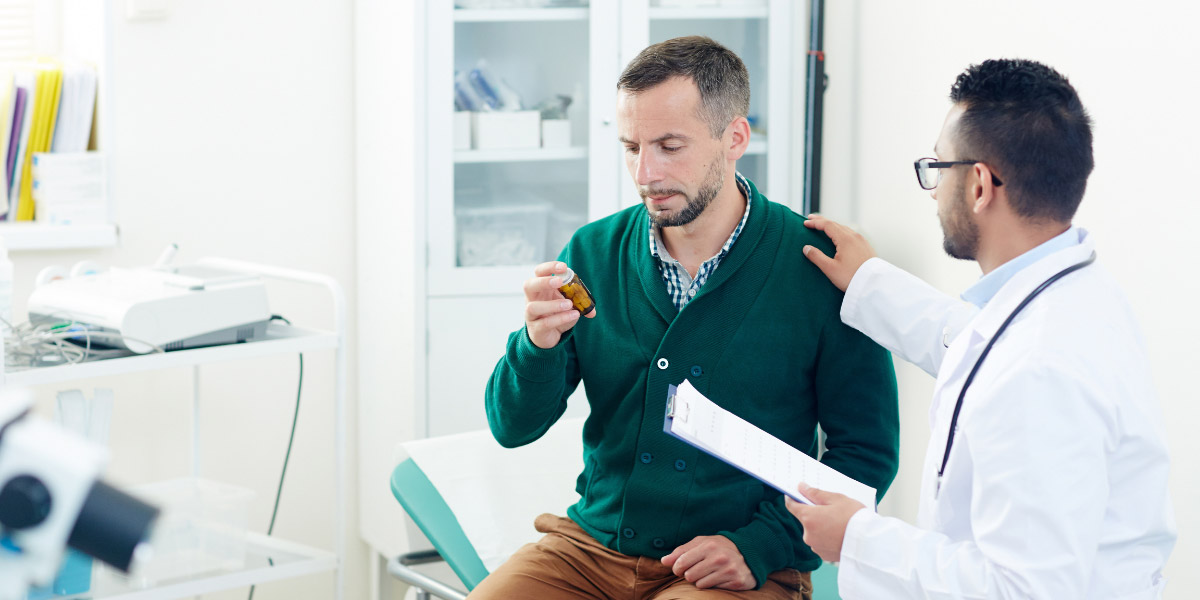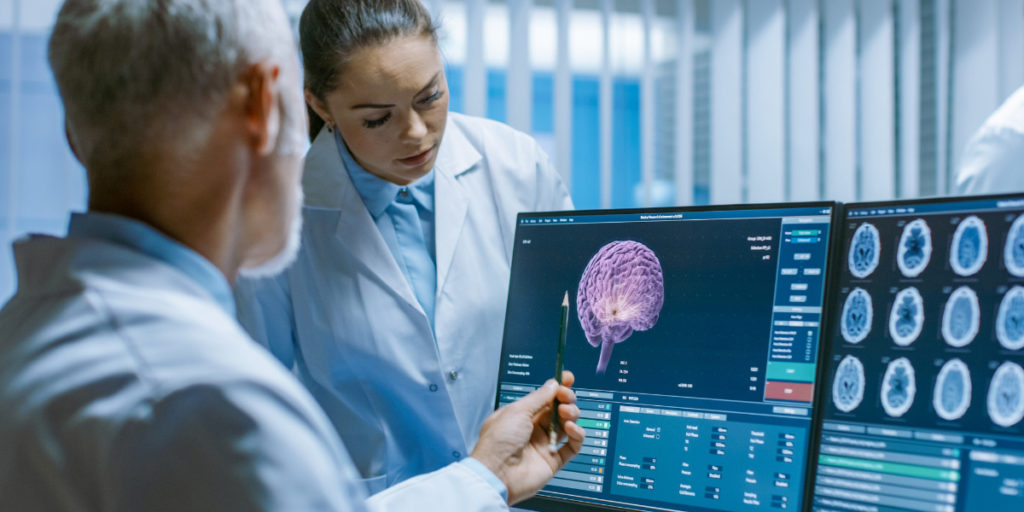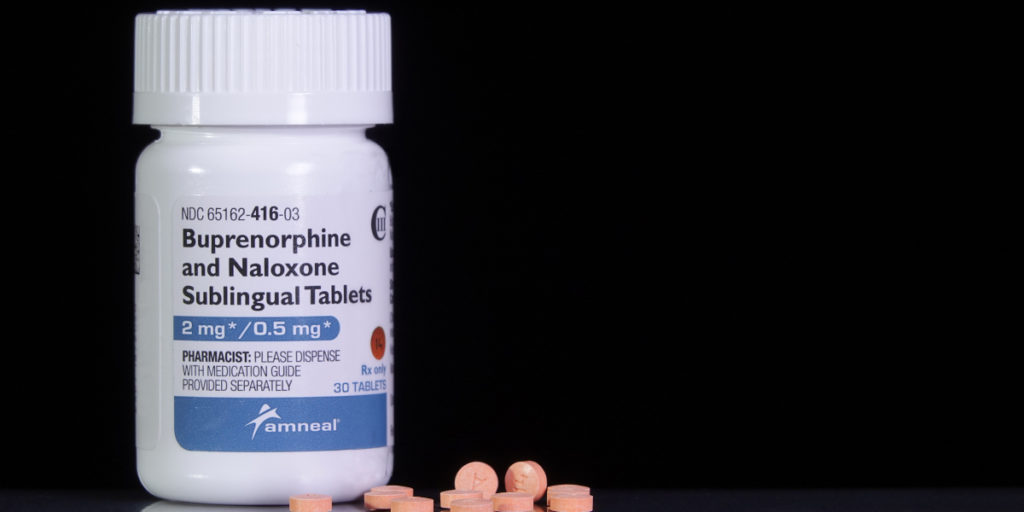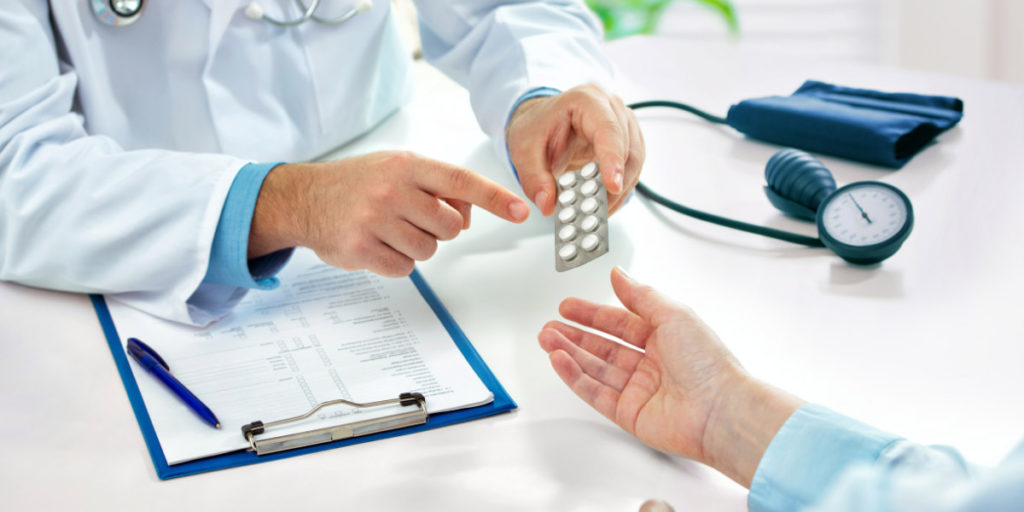Medication-Assisted Treatment (MAT)

Medication-assisted treatment (MAT) can help manage the physical aspects of recovery while other evidence-based treatments treat the roots of addiction. Treating a chronic disease like addiction requires a multi-layered treatment approach to treat the mind and the body.
A large portion of people who become addicted to opioids start with prescription opioids as pain relievers. As dependency increases, some people stick to only prescription pain medications. Still, others will incorporate illegal drugs like heroin in addition to their prescribed medications.
Heroin is a popular opioid that many people use instead of prescription medications when they cannot get or afford prescription opioids because it is cheaper and more widely available.
Medication-assisted treatment for opioid addiction and alcohol dependence is ideal for people who do not have access to treatment facilities near them or feel like staying in their current surroundings makes it impossible to get clean.
Starting with a clean slate in a new place frees you from triggers in your environment— helping you focus on recovery. Utilizing a residential treatment center or inpatient treatment’s nurturing and serene environment and their skill-building practices for life after treatment may be the best treatment option for you.
What Is Medication-Assisted Treatment?
Medication-assisted treatment (MAT) combines using medications for the physical aspects of addiction alongside counseling and behavioral therapies to treat the underlying causes of substance use disorders and alcohol use disorders.
MAT medications are tailored to each person and used for treating co-occurring conditions and substance addiction as part of the holistic treatment approach.
The goal of MAT combined with other treatments is long-term, sustainable recovery.
According to Tennessee’s Department of Mental Health and Substance Abuse Services (TDMHSAS), reasons for using medications to treat opioid and alcohol addiction include:
- Relieve physical discomfort
- Reduce mental cravings
- Block the euphoric effects of opioids and alcohol
- Normalize and regulate brain chemistry
- Stabilize body functions like temperature regulation and digestion
- Reduce or eliminate painful side effects that come with withdrawal
According to the Substance Abuse and Mental Health Services Administration (SAMHSA), medically-assisted treatment significantly decreases the need for inpatient medical detox.
Research shows that people who experience mental illness are more likely to develop substance use disorders. A 2018 study by SAMHSA revealed that about 9.2 million adults in the United States have a co-occurring disorder.
The most common co-occurring conditions medication-assisted treatment can help treat include:
- Anxiety
- Bipolar disorder
- Major depressive disorder
- Post-traumatic stress disorder (PTSD)
- Schizophrenia
- Attention deficit hyperactivity disorder (ADHD)

Does Medication-Assisted Treatment Work?
Medication-assisted treatment aims not to replace one drug with another but uses medically and scientifically backed medications as needed to assist in recovery.
MAT medications reduce cravings, discomfort, and risks from withdrawals and are used throughout substance abuse treatment to treat co-occurring conditions.
The medications used to address cravings and withdrawal work by blocking the receptors in the brain that drugs bind to, making the drug ineffective and reducing the cravings.
Some MAT medications also help the body adjust to the absence of substances and resume normal functions without the intense and dangerous withdrawal symptoms.
Due to the unique needs and circumstances surrounding recovery, there is no minimum or maximum recommended amount of time for MAT as a form of treatment. Thus, every patient will have different needs. Some require more than one type of medication to treat substance use disorders and co-occurring conditions.
Medication-Assisted Treatment for Opioid Use Disorder
As the need to address the opioid epidemic in the United States increases, using medication-assisted treatment for opioid use disorders (OUD) in addition to counseling and other therapies has become more common.
There are two types of medications used to treat opioid use disorder, agonists and antagonists:
Agonists activate opioid receptors in the brain. These cause an opioid effect, but they are less dangerous, and doses can be reduced under medical supervision until the medication is no longer needed.
Antagonists attach to opioid receptors in the brain with no effect, preventing opioids from reaching the receptors and causing a high. Antagonists also block receptors from releasing craving signals to the brain.
The following are the three Food and Drug Administration (FDA) approved medications used to treat opioid addiction, including their names, what type of medication they are, and their uses:
Buprenorphine is a partial opioid agonist that is highly effective for reducing cravings and relieving withdrawal symptoms. For people who wish to avoid methadone, buprenorphine treatments are a good alternative because they have lower abuse potential. Buprenorphine is available as a tablet, patch, implant, or injection and is safe for pregnant and breastfeeding women to use.
Methadone is an opioid agonist that lowers the risk of overdose and can be taken before withdrawal symptoms begin. Methadone can prevent withdrawal symptoms, control cravings for opioids, and ease physical discomfort during withdrawal. Methadone has a high potential for abuse because of its opioid properties. Methadone is available as a tablet or liquid for taking orally and is safe for pregnant women.
Naltrexone is an opioid antagonist with no potential for abuse. Naltrexone helps prevent relapse by suppressing cravings and blocking the euphoric and sedative effects of opioids in the event of a relapse. Patients should be free from opioids for at least seven days before taking Naltrexone. Available as a tablet or injection, Naltrexone is not safe for pregnant women.
Using any alcohol or drugs not prescribed by medical professionals could lead to drug interactions that can undermine and block the treatment of opioid dependence.

Medication-Assisted Treatment for Alcohol Use Disorder
The National Institutes of Health (NIH) studies show a significant reduction in cravings and relapse when patients receive MAT in conjunction with counseling and other evidence-based therapies for treating alcohol use disorders (AUD), especially when co-occurring disorders are present.
The following are the three FDA approved medications used to treat alcohol dependence, and a description of their uses:
Naltrexone blocks the euphoric effects and feelings of intoxication and can assist in reducing alcohol intake. Naltrexone is effective in preventing relapse because it suppresses cravings for alcohol.
Disulfiram is most effective in chronic alcohol users. When a person taking Disulfiram drinks even a tiny amount of alcohol, it causes unpleasant side effects like headaches and vomiting, which deter the urge to drink. People should not take Disulfiram if they’ve had alcohol in the past twelve hours.
Acamprosate does not affect people who are still using alcohol, and it does not prevent withdrawal symptoms. Instead, Acamprosate works in people who have stopped using alcohol to reduce or eliminate cravings for alcohol, making it helpful for preventing relapse. Acamprosate is incorporated into MAT after five or more days of alcohol abstinence.
Is Medication-Assisted Treatment Evidence-Based?
Yes, medication-assisted treatment is evidence-based.
The National Institute on Drug Abuse (NIDA) recognizes that medication-assisted therapy is an evidence-based, effective treatment component that should be combined with counseling and behavioral therapies for a successful treatment plan and reducing relapse risk.
Medication-Assisted Treatment Statistics and Facts
Medication-assisted treatment is not a new concept, but the development of prescription drugs, in conjunction with other evidence-based treatments, is more recent.
Due to federal law, doctors who prescribe MAT medications in the United States must prove they have provided the patient with counseling services and additional treatment options.
Beyond the obvious benefit of maintaining sobriety, MAT has proven long-term benefits for people diagnosed with alcohol use disorder and opioid use disorder.
According to the NIH, the long-term benefits for people who participate in MAT include:
- Increased patient survival after treatment
- Decreased returns and time spent in treatment
- Decreased criminal activities related to buying and using illicit drugs
- Increased ability to gain and maintain employment
- Lower risk of contracting diseases like HIV and Hepatitis C typically caught through needle use
- Improved birth outcomes in women with substance abuse disorders

Medication Assisted Treatment in Los Angeles
At Northridge Addiction Treatment Center, we know that every person is unique, and your treatment plan should be too. Located in the San Fernando Valley of Los Angeles, our residential treatment facility provides a private, stress-free place to focus on all aspects of recovery.
NATC’s licensed and accredited team can safely and comfortably help you through the first stages of withdrawal using medical detox when necessary. From there, we use medication-assisted treatment as part of an extensive and personalized treatment plan that includes dual-diagnosis, individual therapy, cognitive behavioral therapy, and support groups like 12 step facilitation therapy to start you on the path to lasting recovery.
Our goal is to equip you with tools and healthy habits to confidently overcome any temptations and obstacles you might encounter after you leave us.
We have expert admissions specialists eager to answer any questions you may have and confidentially verify your insurance coverage.
Reach out now to take the first steps on your journey to lifelong recovery.
Find Meaningful Recovery
Our caring and compassionate specialists are eager to help you comfortably navigate this journey to recovery. Our individualized treatment plan, programs, and therapies may be a perfect match for you or your loved one. Let us assist you in living the happy life you deserve. It starts with a phone call.




